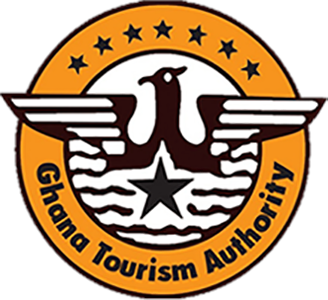This is the final episode of Kofi Akpabli’s Wechiau Adventures
I strolled past the main mosque and descended to the Wechiau market. By now the mid day sun was at its shinning best. Wechiau market occurs every sixth day. My tour began with a quick fix for lunch. I had fish caught fresh from the Volta fried in front of me. I sorted the treat with koosey fried in sizzling shea butter.
The interesting thing about Wechiau market is that for certain items there is the Lobi section and Wala section. With the koosey, for instance, there is the lineup of women preparing the Lobi one and directly facing them another line of women frying the Wala brand.
All the better for the customer, I thought. I simply helped myself to balls of the two varieties. Also, when I wanted pito to wash down my meal, I took care to respect the balance. A refreshing calabash of Wala pito went down first. Then I got up, wiped my lips and then went in for an equally satisfying calabash of Lobi beer. You may think this is a drinking spree but I disagree. I call it ‘‘cashing up the local economy’’.
Agbai, my tour guide had by now excused himself and handed me over to a connoisseur of the local brew. His excuse was reasonable. Being a Muslim, he would rather be excused from the drinking session. The poor, young man has suffered enough ‘‘haram’’ at my hands, having already watched me swallow akpeteshie.
It was thus on a full belly that I got mixed up in the crowd at Wechiau market, rubbing shoulders with traders, shoppers, goats and sheep. The main shopping area is made up of thatch roofed sheds supported by wooden poles. Items sold comprise charcoal, cook ware and second hand clothing. There is a big complex for stores. In front of this structure is the fufu base which is quite a sight.
Unlike the plantain and cassava affair that pertains in southern Ghana, fufu in these parts is strictly a yam business. The mortars for the process are giant ones with some standing as tall as chest level. It is real macho women who do the pounding. Five or six of them stand round the huge mortar each with pestle in hand. In rhythm, and with much energy, the pounders keep hitting till the fufu is done. There are about five of such stations in the market area. Can you imagine the fufu sound splash when all stations are pounding at the same time?
From the fufu base I strolled to the forex bureau section. If you are thinking dollars and CFA’s think again. In Wechiau society, cowries are as good as money. And the demand for them is very much alive. In a number of customary transactions, cowries are mandatory. Among friends and families, the exchange rate is a hundred cowries to ten thousand old Ghana cedis and vice versa. But the commercial rate is higher. Since the redenomination, the cowry system has also duly complied. One hundred cowries are now equal to One Ghana cedi, with the value being the same.
At the market, the day’s rate was 120 cowries for One Ghana cedi. And if it is 100 cowries that you want, you must pay One Ghana cedi twenty pesewas. Call this the bank rate. A bearded, middle aged man who knew not a word of English sat, legs outstretched with cowries spread on a mat. In my mind, I called him the Chancellor of the Exchequer. Guess what? The Chancellor was also selling cola nuts. When I appeared before him all he wanted to know was if I wanted cedis or cowries.
My last port of call was the chief’s palace. Having made an appointment, I arrived in the company of Agbai. One imposing structure in Wechiau town is the palace. Not surprisingly, there are hippo paintings on the outside wall. The palace is built in the form of the ancient Larabanga Mosque. But the inside is all modern.
The Wechiau-Naa, Imoru Nandon Gomah II was in the courtyard with three of his elders.
Naa is proud that the transformation of Wechiau is happening under his traditional leadership. He believes his forefathers would also be happy. He said that in the past, their people showed great strength by hunting down and eating the hippo. In those days anyone who killed a hippo was a hero and presented the hind legs to the chief’s palace. According to the paramount chief, today, such an act would be a taboo. ‘‘My forebears might have been braver, but because I protect the hippopotamus, I have seen things that they have not seen’’, he added.
Having finally brought my trip to an end, my next action was to jump on the next available bus to Wa, rest my exhausted body for the night and then connect to Accra the next dawn. As for Agbai and his crew, I don’t think I can thank them enough.
In many respects, my adventure to Wechiau has been fulfilling; the river safari, the encounter with the hippos, the interactions and all the new things learnt. But more than any of these, it was one simple phrase that kept coming back to me. It meant much more to me than I can ever explain. This was a statement made by Wechiau-Naa during our chat: ‘‘every stranger’s visit makes us feel important’’
I left Wechiau with those words ringing in my head.
Author: Kofi Akpabli (A travel writer)


 Call Center
Call Center